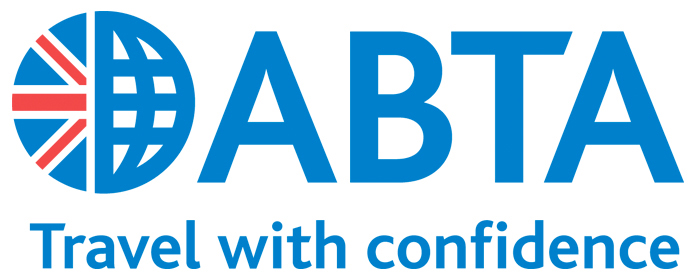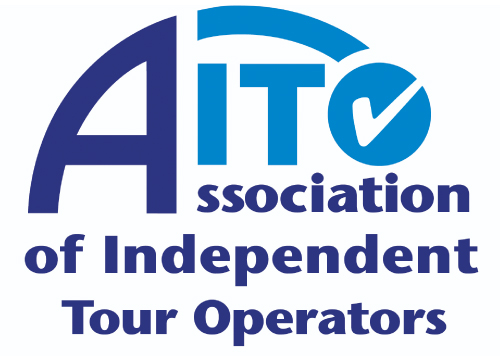Below is our list of Bhutan travel essentials: visas, money, language, tipping, keeping in touch, and more. We suggest consulting additional resources such as your preferred guide book, clicking through to the helpful links below, and of course, chatting with your friendly Fleewinter Bhutan specialists who will help you prepare for your trip to the Land of the Thunder Dragon.
Visas
All visitors to Bhutan (except those from India) must have a visa to enter Bhutan. As part of your Fleewinter holiday, we will acquire this for you after your balance is paid. To do this, we will require a scanned color passport copy, a digital passport photo, and proof of valid travel insurance. We will send you a visa clearance document 10 days – 2 weeks before your arrival in Bhutan and you will need this to check-in for your flight to Bhutan. You will need a printed passport sized photo and travel insurance certificate in hand when you arrive in Paro where the actual visa will be stamped into your passport. Please note that your passport must be valid for at least six months after your departure from Bhutan and you must apply for the visa with the passport on which you will travel.
As you will need to spend a night in a gateway country on your way to and from Bhutan, please ensure that you have any necessary visas for those stays. Our Thailand, India, and Singapore pages are helpful resources if you’re passing through those countries. If you are flying through Nepal, please check the FCO entry requirements for British visitors.
Sustainable Development Fee
All visitors to Bhutan except for children under the age of 6 are required to pay a Sustainable Development Fee to support Bhutan’s development. This fee is allocated to a variety of projects including infrastructure, education, and healthcare. As of April 2024, the SDF is US$100 per person, per night spent in the country. Children between the ages of 6 and 12 are half that amount. We will include this fee in your Bhutan holiday package price.
Travel & Medical Insurance
Full travel insurance is required to obtain a visa to Bhutan and must be maintained throughout your stay. If your holiday includes a trek, your insurance must include emergency evacuation by helicopter and provision for repatriation. Please visit our page on travel insurance for general guidance on obtaining a policy.
Vaccinations & Health
As no member of our team is a medical doctor, we advise you to make a travel appointment with your local medical team for the most up-to-date and accurate information. Malaria is not generally a risk and for most travellers, having your normal jabs up-to-date will suffice. The NHS Fit for Travel page is an excellent resource on suggested vaccines and other health advice for travel to Bhutan.
Currency
The Ngultrum (Nu) is the currency of Bhutan and is fixed to the value of Indian rupees. There are no ATMs in Bhutan and the best currency to bring is US Dollars. We suggest having a mix of large and small bills for exchange and spending. Newer bills are more easily accepted and some USD notes from before 1997 will not be accepted anywhere. Banks can be found in all major towns. A small number of hotels and shops in Thimphu accept Visa cards with a surcharge and even fewer accept MasterCard or American Express.
Tipping
Restaurant and hotel bills include a 10% gratuity and there is generally no expectation of a tip on top of this. If your drivers and guides make your holiday more enjoyable, tips are much appreciated. We recommend USD$5-10 per day for drivers and US$10-20 per day for guides.
Alms Giving
Near temples and markets, it’s common practice to give alms to holy men and mendicants who will intone a prayer for you if you give them a coin. When encountering these people, it’s best to follow your guide’s lead or ask him or her for advice on what to do.
Language
While Dzongkha is the national language, there are 19 dialects spoken around the country. The geographic divisions of the land with its high mountains and valley settlements, led to this diverse collection of languages so as you move from west to the centre, to the east, and to the south, you’ll hear the changes. We will provide you with an English-speaking guide who will be able to assist you throughout your time in Bhutan.
Clothing
Given the range of climates you’re likely to encounter as you move through different altitudes, layers are essential. Breathable, quick-drying layers are ideal and if you’re visiting in winter, you’ll want long johns and other base layers. When visiting monasteries, Dzongs, and other religious institutions, please dress respectively and remove any hats or caps. Arms should be covered; shorts and short skirts should be avoided.
Internet & Phone
The larger and more upscale hotels have WiFi available to guests, at least in the main areas although if you want to be connected throughout your stay, it’s best to pick up a local SIM card on arrival from a visitor information centre. You can also pick these up at Bhutan Telecom and Tashi Cell authorized agents in town.
Time Difference
Bhutan is 6 hours ahead of GMT and has only one time zone with no change for the summer or daylight savings.
Electricity
Round two-pin and three-pin power outlets are standard in Bhutan and plug adapters are nearly impossible to find outside Thimphu so please ensure you bring the correct adapters for your electronics. Electricity runs on 220/240 volts.
Drinking Water
The tap water is not safe to drink in Bhutan so ice cubes and un-boiled water are best avoided. Safe drinking water is readily available for purchase throughout the country.
Festivals
If you are fortunate enough to witness a religious festival during your time in Bhutan, please be respectful of these sacred events. These are not staged for entertainment or pageantry so visitors are asked to act considerately. Any obtrusive, disrespectful or discourteous behavior including eating, drinking, and talking or laughing loudly at inappropriate times may result in being asked to leave and future visitors being prohibited. We will provide more information on attending festivals if a chance to witness one is part of your Fleewinter holiday to Bhutan.
Recommended Reading
As Bhutan is unlike anywhere else in the world, we highly recommend picking up a book or two about life in this mountain kingdom before you go. Some of our favourites are Beyond the Sky and the Earth: A Journey into Bhutan by Jamie Zeppa; Radio Shangri-La by Lisa Napoli, Married to Bhutan by Linda Leaming, and Treasures of the Thunder Dragon by Ashi Dorji Wangmo Wangchuck, Queen of Bhutan.
One more thing…
The culture of Bhutan is unique and there is quite a lot to consider as you prepare for your holiday. When you book with Fleewinter, we’ll give you our handy answers to FAQs with guidance on how much money to bring, what to pack, what not to bring (hint: please leave out the pens, sweets, chewing gum or other items to give children who come begging), where it’s ok to photograph and where it isn’t, and more.





